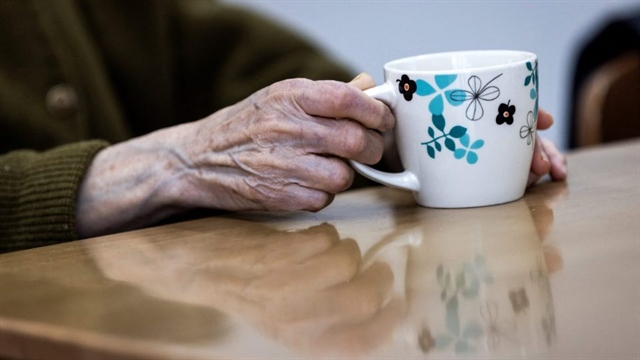 World
World


|
| The law on childcare and caregiver leave allows employees to use support systems to help them balance work and family care. But only 1.6% of employees caring for their parents took nursing care leave of up to 93 days, which is given per family member who requires nursing care. PHOTO: AFP |
TOKYO – Fumihiro Uchida, 64, of Osaka quit his job at a metalworking company in September 2022 to care for his mother Teruko, 88. Although he wanted to keep working as long as he could, his mother needed constant care.
Teruko had been living independently but was making use of day care services since breaking a bone from a fall. A high fever led to her being hospitalized, and her physical and mental condition deteriorated during her two months there. Uchida was told that his mother could be discharged only if someone could be with her at all times.
Uchida, who had continued working after reaching the mandatory retirement age of 60, thought he may be able to keep working if he was allowed to leave the workplace at 3 p.m. to take care of his mother after she returned home from a day-care facility in the evening. Nevertheless, he decided to quit his job, since he did not want to cause his company any trouble.
Teruko’s condition improved one month after being discharged from the hospital, so Uchida started looking for a new job through the Hello Work public job placement office and job sites. But he has been unable to find a job that he wants due to his age and working-hour requirements.
According to the Internal Affairs and Communications Ministry, 106,000 people left their jobs to care for family members during the one-year period ending September 2022, an increase of 7,000 from the previous survey in 2017.
The law on childcare and caregiver leave allows employees to use support systems to help them balance work and family care. But only 1.6% of employees caring for their parents took nursing care leave of up to 93 days, which is given per family member who requires nursing care. Employees can split this leave into as many as three blocks.
Only 4.5% of such employees took time off for sporadic care-related events such as hospital leave, which has a limit of five days a year.
“Some people believe that caring for their parents is their responsibility alone and can think of no option besides quitting their jobs. Employers also lack knowledge and experience in caregiving and are unable to provide sufficient information about such things as the support systems,” said Mie Waki, representative director of a Tokyo-based general incorporated association for the promotion of measures to make it unnecessary for people to leave their jobs to care for family members.
To raise awareness of the support systems and encourage their use, the Health, Labor and Welfare Ministry obliged companies in April to explain the systems to employees who need to care for family members on an individual basis and to confirm whether they will be making use of them.
Changing work climate
However, many people find it difficult to discuss caregiving with their bosses. Some hesitate to use the systems out of consideration for colleagues who would have to take over their duties. A work climate where employees can comfortably talk about their personal circumstances is essential.
A Tokyo-based IT-related company encourages managers to check on their subordinates to see if they need to care for family members and to encourage them to utilize the support systems.
As of 2022, there were 3.646 million people providing nursing care for family members while working. Of them, those in their 50s accounted for the highest proportion at 42%.
The government estimates that the annual economic losses resulting from workforce shortages due to resignations and other reasons will exceed ¥9 trillion in 2030. As Japan faces an increasingly aging society, the number of employees who provide nursing care for their families will rise.
“Companies must recognize employees’ caregiving-related concerns as issues related to business operations and adopt a proactive stance to explore ways for employees to continue working with them,” said Jun Kawauchi, representative director of Tonari no Kaigo, a nonprofit organization in Atsugi, Kanagawa Prefecture, which supports people providing care for family members.
“The government, for its part, should provide financial support for companies to implement measures such as encouraging employees to seek early consultations.”
Parties pledge increased support
In face of the rapidly aging population, political parties have made pledges to carry out policies aimed at preventing people from leaving their jobs due to caregiving in the campaigning for the upcoming House of Councillors election.
The Liberal Democratic Party said it will aim to improve care services, which will also help prevent people from leaving jobs to take care of their family members. The party also said it will work to raise wages for care workers and provide stability to care service providers.
The Japan Innovation Party proposed the promotion of housework support services so that people do not have to leave their jobs to rear children and care for family members. The JIP said it will establish further support systems to enable employees to continue working while taking care of family members.
The Japanese Communist Party said it will increase national spending on the public nursing care insurance program by ¥1.3 trillion and improve the treatment of caregivers and others.